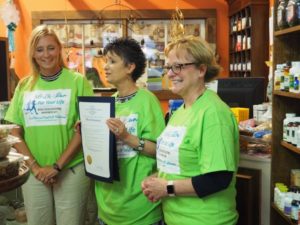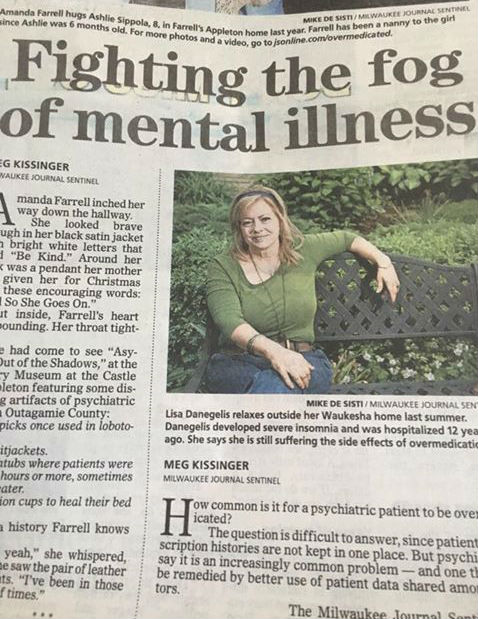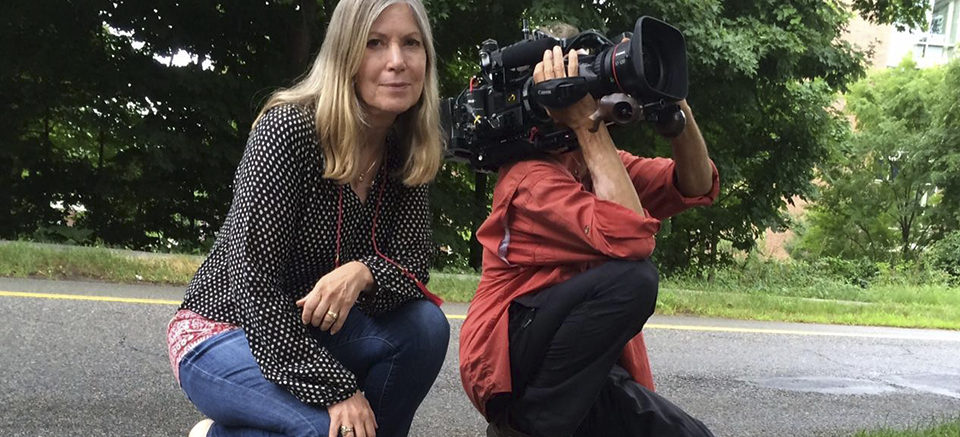How do I get local media coverage?
The easiest way to get media coverage would be to reach out to your local newspapers or other local news outlets. They are easier to obtain coverage from as they cover a niche area.
PRO-TIP from W-BAD’s Head Communications Liaison: Let your local media know that there will be a photo or video opportunity at the event you are asking them to cover (e.g., if you and a few other campaigners are meeting up to hand out pamphlets or if you are willing to allow them to photograph you in your W-BAD T-shirt for the story).
By offering to tell your story to your local media (and perhaps to include other local people affected by iatrogenic benzodiazepine injury, dependence, and/or withdrawal) — a member of the local community — it becomes more relevant to the readers and, therefore, more likely to be covered.
If you don’t know of any local media sources in your area, just perform a Google search termed “[your location] area newspaper”. The more media outlets you contact, the greater your chances of having your story covered. You can also contact media sources outside of your local area as well in an attempt to get wider coverage, but this may prove more challenging.
Effective Media Outreach

See W-BAD Connecticut for an example of effective media outreach.
Sample letter to the press:
Feel free to copy and paste the below, changing the parts in red to your personal information.
1. Letter to Press
Dear Sir/Madam,
I am writing with regards to World Benzodiazepine Awareness Day which is held annually on July 11.
This day was established by the patients themselves to help inform doctors and the general public of the ever-growing social issue of prescribed benzodiazepine harms. Benzodiazepine drugs include Xanax, Konopin, Valium and many others.
(include a very brief version of your story here as well as any coverage you are asking for – e.g., if you are hosting a local W-BAD event that will have a photo/video opportunity for the press)
If you would like to cover this unique global initiative, please feel free to contact us anytime.
(Your Name and Contact Information, if you wish)
W-BAD Supporter
(Your Location)
Please see the following for details:
(please paste URLs in cases where hyperlinks may become inactive – you can generate the URLs / addresses by simply clicking on the following links)
Press Packet
Official Website
Official W-BAD Video
What is W-BAD about (objectives etc)?
W-BAD on Facebook
2. Responding to online comments
Please copy and paste the following into any online comments:
World Benzodiazepine Awareness Day is held annually on July 11 to help raise awareness about the dangers of prescribed benzodiazepine drugs (Xanax, Klonopin, Valium etc).
See official website: https://worldbenzoday.org
See the Press Packet: https://worldbenzoday.org/wp-content/uploads/2017/04/FINAL-PRESS-PACKET.pdf
See our official W-BAD video: https://www.youtube.com/watch?v=ZJZE6_z3-Tw
See Launch Announcement: https://www.facebook.com/notes/world-benzo-awareness-day-july-11th/w-badorg-official-launch-announcement/1190484531079530/
Some other ideas for raising awareness in the media:
-
- contact established relevant blog writers with a big following
- journalists you might know personally or through someone else (use your contacts!) who write for larger outlets
- appear on an established podcast or radio interview (reach out to them to see if they’ll have you as a guest!)
- tell your story to a widely listened to audience (e.g., pitch it to The Moth or similar)
- if you are a writer yourself, write and pitch it to some news outlets (e.g., Huffington Post or similar)
TIPS FOR CONTACTING THE MEDIA
To contact a news outlet, you must first locate their contact information. Once you locate the contact information, follow their instructions for submitting your story.
The most important aspect of your contact e-mail should be to highlight why the story is relevant and why they should cover it. Emphasize the importance or relevance of the story to the media you are approaching – “sell” them your story.
When telling your story, keep it focused on the main points. Make sure you provide them links to previous news coverage, links to the W-BAD campaign and your contact information. For your convenience, W-BAD has put together a Press Packet that you can include when you contact different media sources.
BE PREPARED
Once you have attracted the media and have got them interested in covering your story, what are you going to say to them? Be prepared for any return contact from the media outlet(s) you contacted. In many cases they will expect for you to be willing to share your story, to appear in photographs, etc.
BE PERSISTENT
If you don’t hear back from a news outlet that you contacted, reach out to them again with a follow-up email. Some news outlets will also have their phone numbers posted on their contacts page, so you might also consider giving them a call.
REPRESENT OUR CAUSE PROPERLY
Remember that W-BAD’s mission is to bring awareness about iatrogenic benzodiazepine injury, dependence, and withdrawal. It is important that you use proper terminology when pitching your story to media outlets so that your efforts don’t actually undermine our purpose by having us featured in yet another totally misrepresented story of “drug addicts abusing pills” or similar. No press is better than the bad press in that case.
Also, ask if the journalist or writer or whoever is hosting your story is open to allowing you to see and/or approve the story before it is published. There have been numerous instances of people believing their story would be told accurately and as they expected it to be portrayed only to be disappointed or horrified when it hit the news and they saw their face under a totally misleading, sensationalistic title or surrounded by text falsely portraying them as a “drug abuser” or as “mentally ill”. Express your concerns and fears over this to the journalist/writer and see if you can head it off at the pass before it becomes an issue.
The following (image below) is a prime example of where a prescribed benzodiazepine withdrawal victim reached out to their local press to tell their story, initially excited to be featured in what she thought would be a highlight of benzodiazepine dangers and overprescription, only to be disappointed at the erroneous misrepresentation of the printed headline, “Fighting the fog of mental illness,” upon the article’s release. At the time it was published, Lisa (who is the prescribed benzodiazepine victim featured in the article) was distressed over the article’s title and also stated, “I’m only talked about in a very short paragraph as a sidebar in conjunction with a much larger human interest story they’ve been following. The story does talk about overprescribing but nowhere near touches upon the hell I and tens of thousands of you guys have been through. I’m so disappointed”. She states that she did ask ahead of time if she could read the story before it went to print and she was met with a resounding “no!”.

